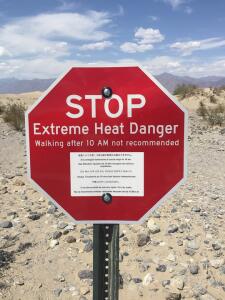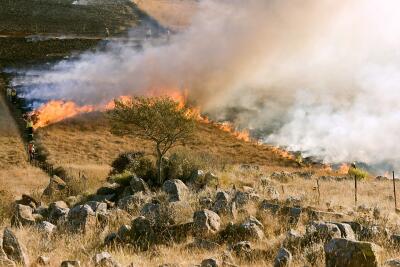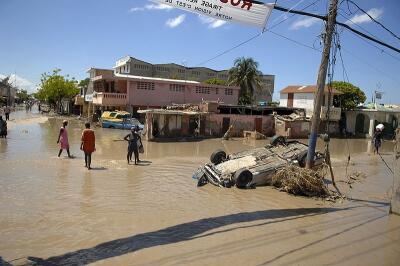Climate Change: It's Not Only Hurting the Environment
Climate change is threatening to change the ecological balance of the Earth, and it's impacts on the environment are well known. But did you know that humans are also vulnerable to health impacts from climate change? The World Health Organization estimates that 250,000 deaths per year will be caused by climate change between 2030 and 2050.
Heat Impacts and Air Quality
 Heat waves are one of the most dangerous results of climate change. Exposure to higher temperatures can lead to dehydration and stroke, especially in children and the elderly who cannot withstand the extreme temperatures, as well as cardiovascular, respiratory, and cerebrovascular diseases.
Heat waves are one of the most dangerous results of climate change. Exposure to higher temperatures can lead to dehydration and stroke, especially in children and the elderly who cannot withstand the extreme temperatures, as well as cardiovascular, respiratory, and cerebrovascular diseases.
According to the USEPA, the United States will experience an increase in heat-related deaths, possibly tens of thousands of additional deaths each year by the end of the century during summer months.
Extreme changes in the climate also affect the air we breathe by worsening air quality, which can lead to asthma attacks and other respiratory and cardiovascular health issues. Wildfires, which create smoke and other unhealthy air pollutants that are major contributors to damaging air quality, are also expected to continue to increase in number and severity as climate change worsens.

Following the California wildfires in 2003, hospitals saw a 5% increase in patients that had health problems relating to asthma.
Despite improvements that have been made in air quality within the United States, in 2015 approximately 121 million people lived in counties with pollution levels that failed to meet the national standard for air quality.
A report published in 2016 by the White House, entitled, "The Impacts of Climate Change on Human Health in the United States: A Scientific Assessment," warned the public about the serious threat to public health that climate change poses. At the time the report was published, former White House Science Advisor John Holdren emphasized the threat.
"Every American is vulnerable to the health impacts associated with climate change," said Holdren.

In other countries, the air pollution problem is a bit more concerning. As of late December, Paris was experiencing the most serious surge in air pollution that they have seen in the last decade, causing the implementation of measures like free public transportation to lessen the amount of cars on the road and banning vehicles built before certain dates to try and tackle the problem.
Extreme Weather Events
Extreme weather events caused by climate change have also had a huge impact, causing over 60,000 deaths a year, predominantly in developing countries. Many people die during natural disasters, like tornadoes and hurricanes due to physical injuries, but even after the storm is gone, lives are threatened by the lack of fresh water supply and food, the heightened risk of water-borne diseases, and the availability of secure shelter and medical facilities.
Due to the damage caused by rising sea levels and extreme weather events, many people are often displaced from their homes and cities, forcing them to move away from their homes, in some causes even to different countries, causing not only health effects, but also mental disorders and communicable diseases.

All populations, even Americans are being affected by climate change, some more than others. Unfortunately, developing regions with little-to-no resources to withstand or recover from the impacts of climate change are more vulnerable to these effects.
Planet Aid is committed to helping combat climate change while supporting sustainable development projects that help developing areas obtain the resources to survive. To find out more about Planet Aid's programs and commitment to fighting climate change, click here.
